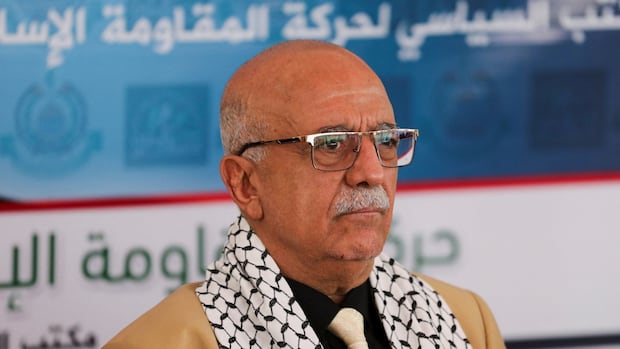The Houthis, supported by Iran, reported on Saturday that the prime minister of the rebel-led government in Sanaa, Yemen, was killed in an Israeli airstrike. This marked the highest-ranking Houthi official to be eliminated in the ongoing Israeli-U.S. offensive against the Iranian-backed rebels.
Ahmed al-Rahawi, who assumed his position in August 2024, passed away on Thursday alongside several ministers, as stated by the rebel faction. The group disclosed that additional ministers and officials sustained injuries but did not furnish further specifics.
The strike was directed at him and other members of the Houthi-controlled government during a routine meeting organized by the government to assess its activities and performance throughout the preceding year.
The incident occurred while the rebel-owned TV station was airing a speech by Abdul Malik al-Houthi, the enigmatic leader of the group, discussing the latest developments in Gaza and pledging retaliation against Israel. Senior Houthi officials typically gathered to watch pre-recorded speeches by al-Houthi.
According to three tribal leaders who spoke anonymously to The Associated Press due to fear of reprisal, the airstrike that killed the prime minister targeted a meeting of Houthi leaders in a villa in Beit Baws, an ancient village in southern Sanaa.
Confirming the strike, the Israeli military stated it had “precisely struck a Houthi terrorist regime military target in the area of Sanaa in Yemen.” Subsequently, the military acknowledged in a statement late on Saturday that al-Rahawi, along with other high-ranking officials, were killed in the operation. It highlighted that the senior officials present at the facility were responsible for “terror actions” against Israel.
Al-Rahawi hailed from the southern province of Abyan and was an associate of former Yemeni president Ali Abdullah Saleh. He aligned with the Houthis when they seized control of Sanaa and significant portions of northern and central Yemen in 2014, sparking the country’s protracted civil conflict.
The U.S. and Israel initiated their aerial and naval assault in response to the rebel group’s missile and drone assaults on Israel and Red Sea vessels. In solidarity with the Palestinians amid the conflict in Gaza, the Houthis targeted ships, disrupting shipping activities in the Red Sea, a crucial route for approximately $1 trillion worth of goods annually.
The U.S. and Israeli strikes resulted in numerous casualties in Yemen. In one instance in April, a U.S. attack on a prison detaining African migrants in the northern Sadaa province led to the death of at least 68 individuals and left 47 others injured.
Ahmed Nagi, a senior Yemen analyst at Crisis Group International, described the assassination of the Houthi prime minister as a “significant setback” for the rebels. He noted that the escalation signified a shift by Israel from targeting the rebels’ infrastructure to focusing on their leadership, including senior military figures, posing a greater threat to their command hierarchy.
In May, during President Donald Trump’s administration, a pact was announced with the Houthis to halt airstrikes in exchange for ceasing attacks on maritime vessels. However, the rebels contended that the agreement did not encompass ending attacks on perceived pro-Israeli targets.



